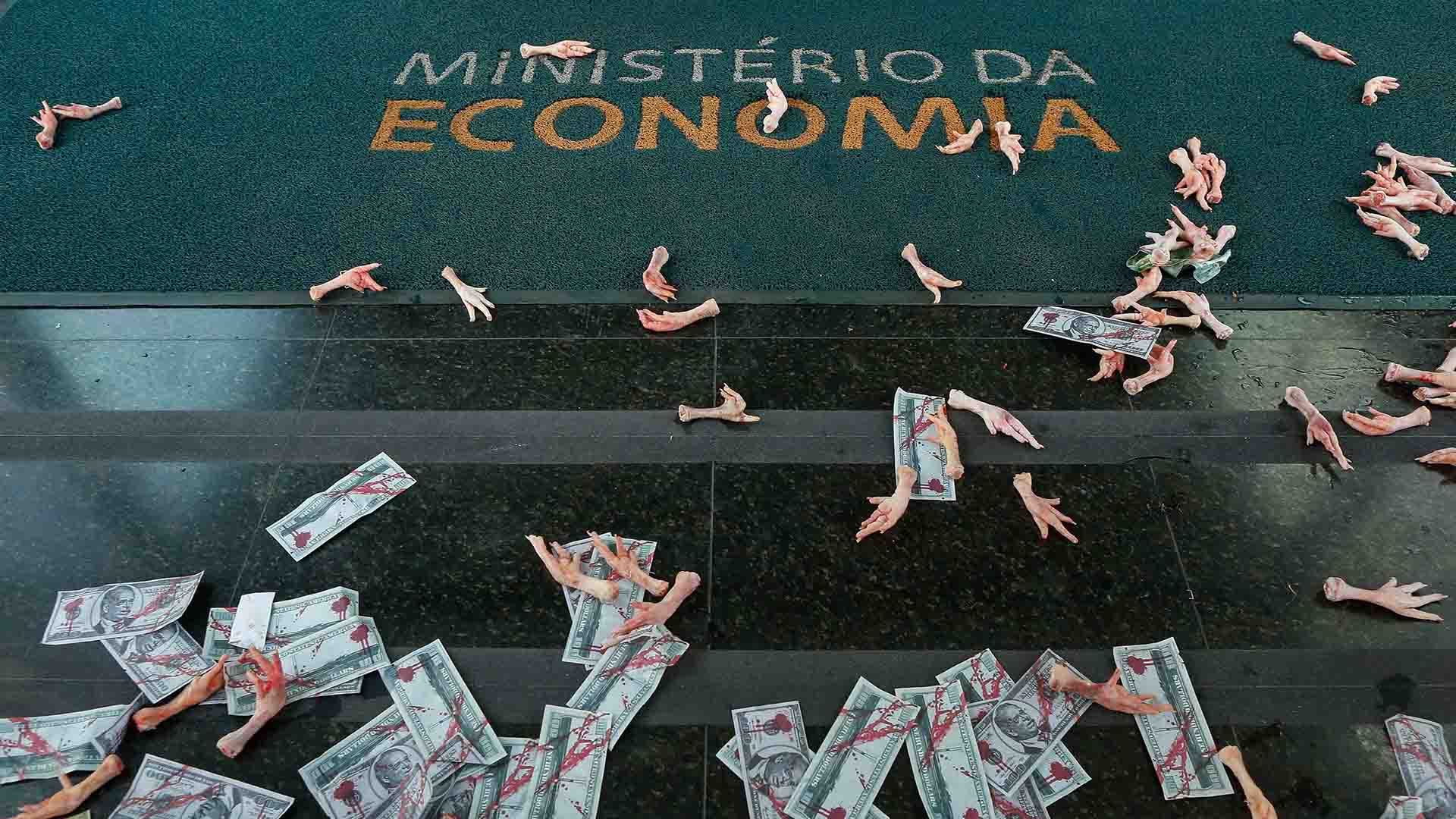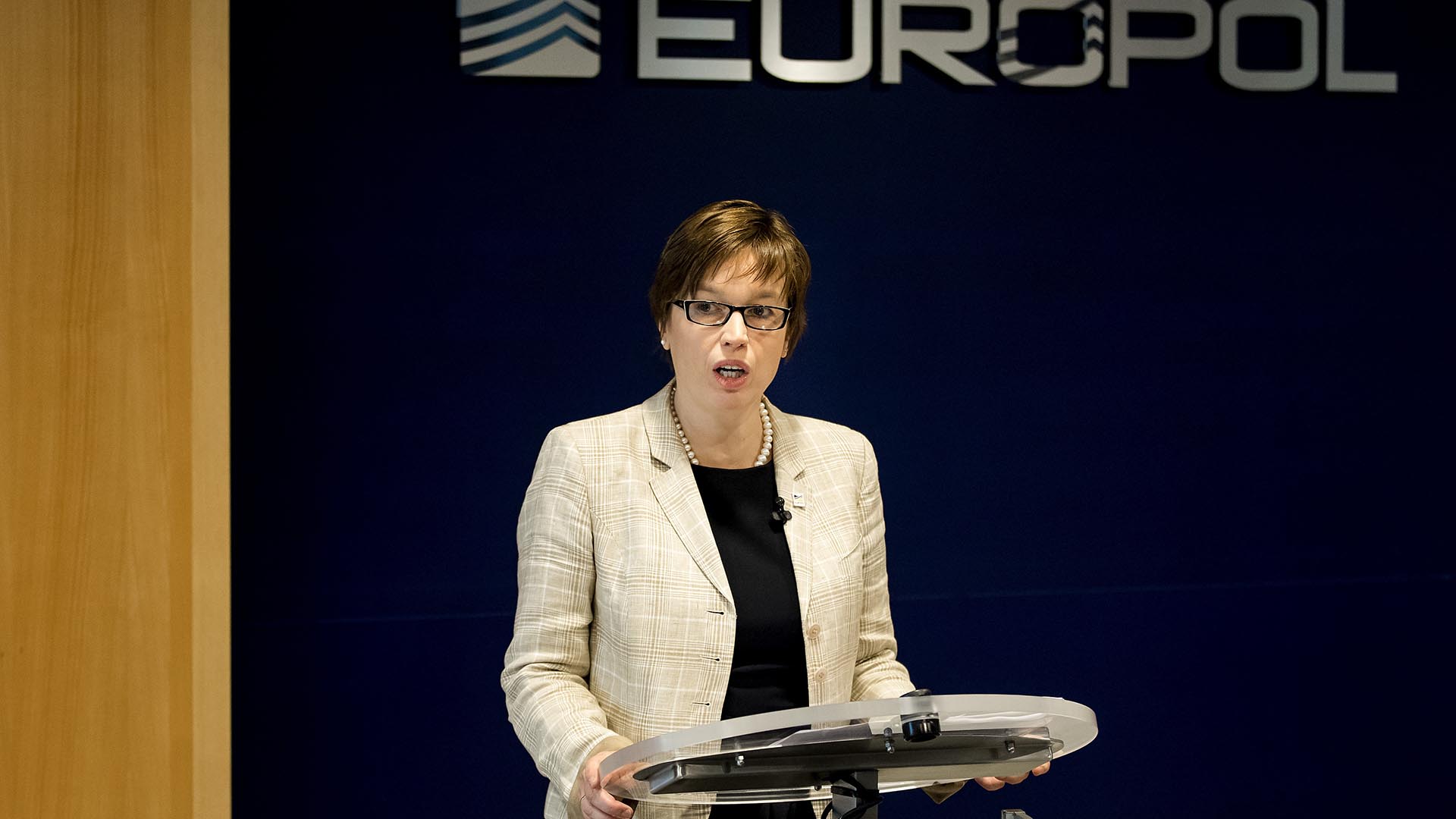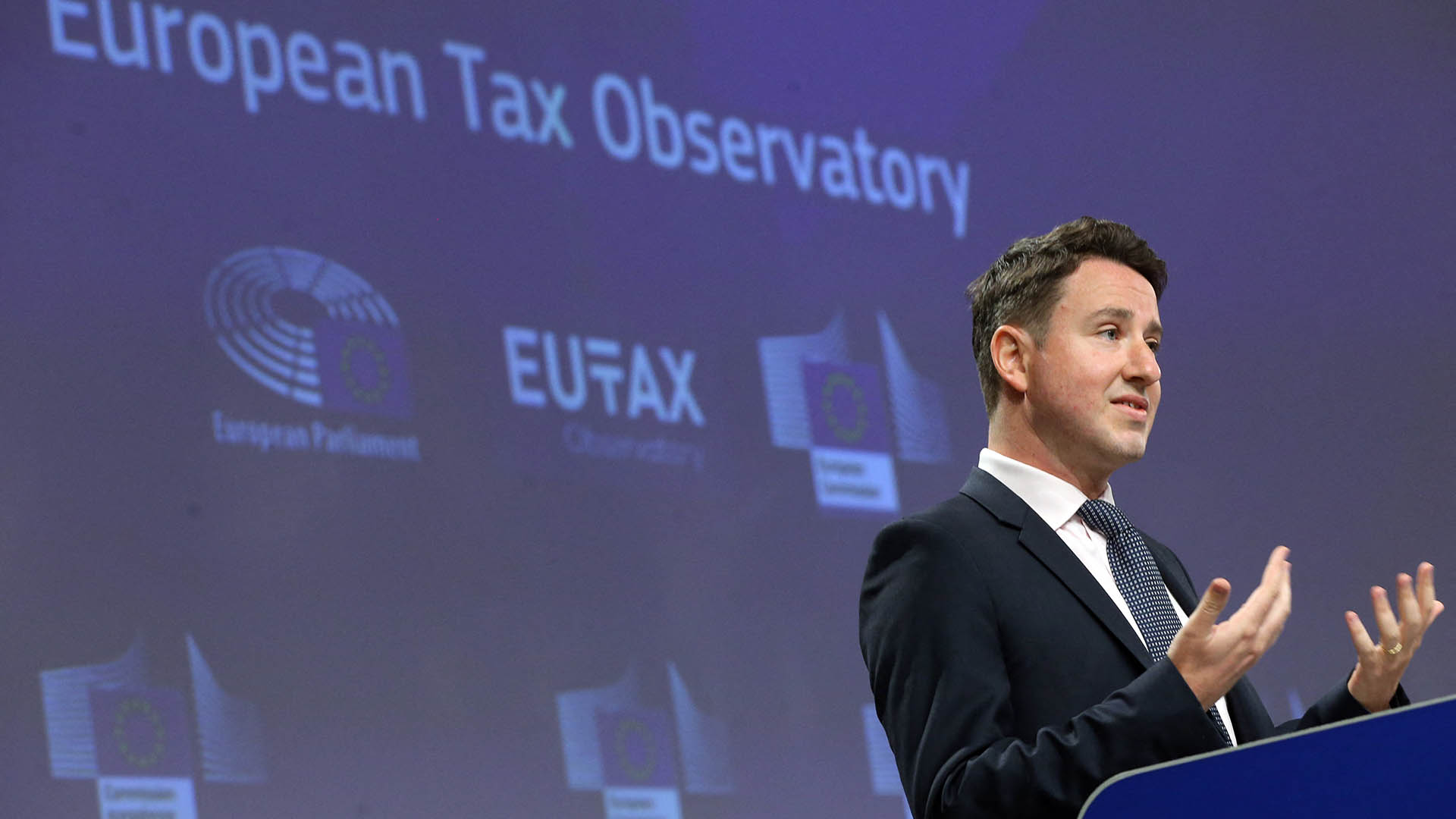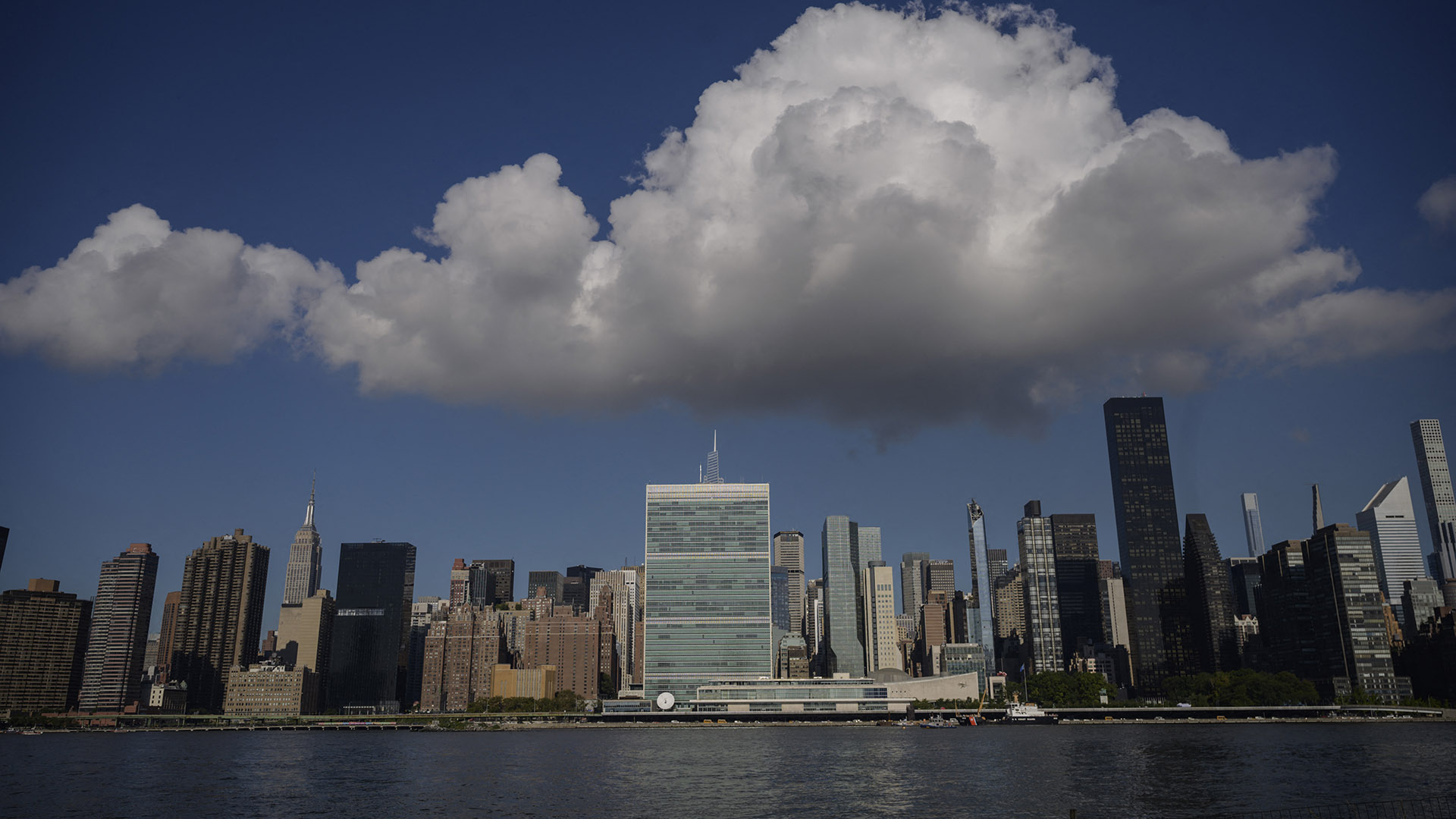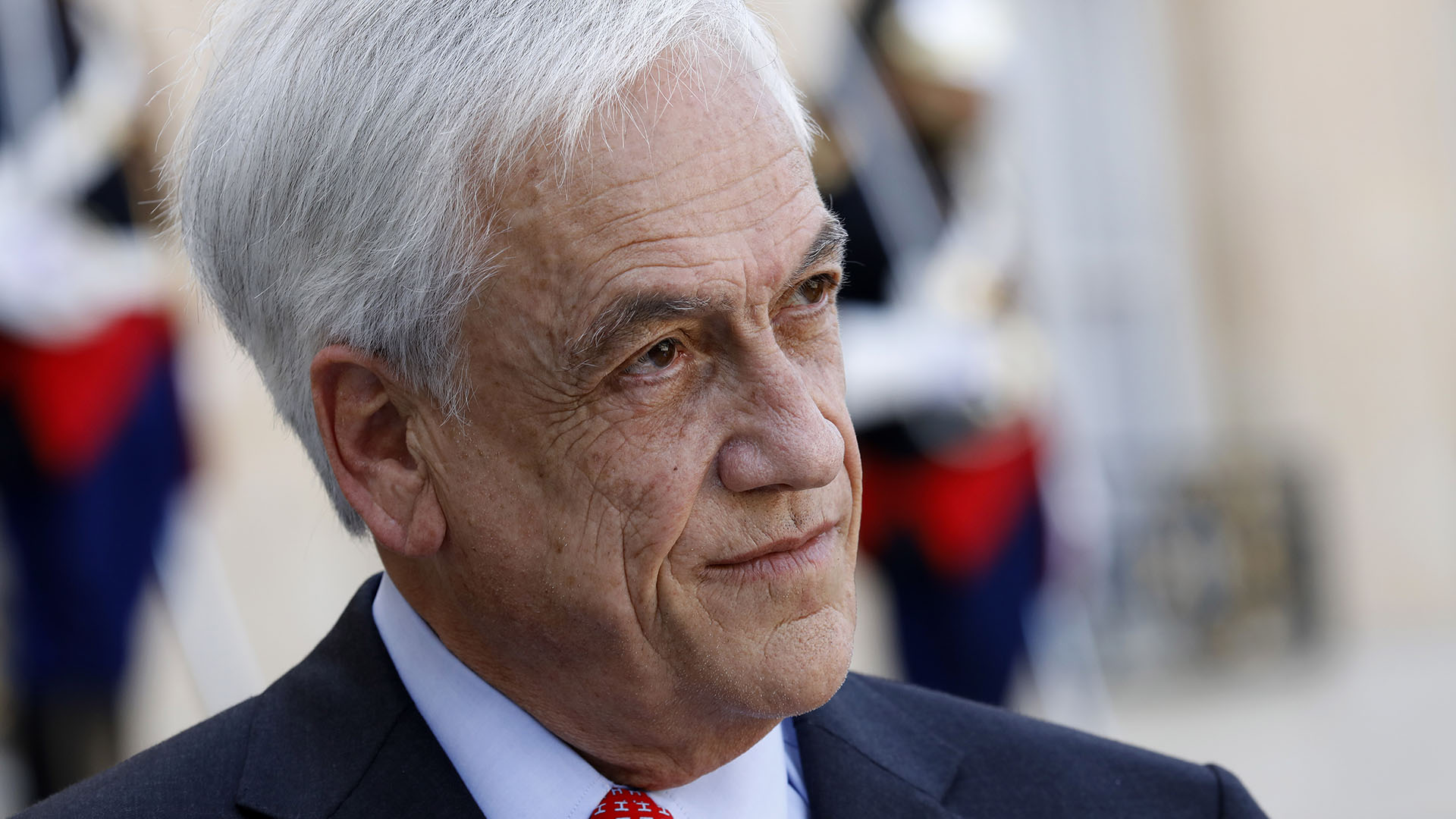A suspected terrorist, a cult leader and a group of electronic DJs are among the sensational figures featured by journalists across Europe as part of the Pandora Papers — an investigative collaboration between the International Consortium of Investigative Journalists and a network of 600 reporters working across 117 countries.
The investigation, based on a trove of nearly 12 million leaked documents from the law firms and financial advisers that facilitate the creation of offshore shell companies, shines a light on a parallel financial system focused on secrecy that benefits the wealthy and powerful, often at the expense of the general public.
Since the first stories were published on Oct. 3, governments around the world have opened investigations into the revelations in the Pandora Papers. The European Parliament passed a resolution in October calling on member countries to strengthen their beneficial ownership registries — or face penalties if they are lagging behind in implementing existing anti-money laundering regulation.
The European Union’s economic commissioner, Paolo Gentiloni, praised the work of the journalists behind the Pandora Papers, saying that the leaks “demonstrate that we cannot be complacent and we need to work continuously to further [strengthen] our armoury against tax abuse.”
Here are some Pandora Papers highlights from ICIJ’s partners in Europe.
Austria
Vladimir Chernukhin, an ally of Russian President Vladimir Putin and a former vice minister of finance, used an Austrian bank to hold bank accounts for one of his offshore companies, and transfer more than $160 million in loans to related parties, according to Austrian magazine profil and broadcaster ORF. One transaction was used to buy property in Southern France, they reported. Chernukin’s wife Lubov is one of the largest donors to the U.K.’s conservative party.
The Austrian reporting team also used Pandora Papers records to investigate the supply chain and testing process of discount shoes from Vienna to Salzburg to Singapore. Confidential emails show how the owners of an Austrian footwear company considered using shell companies in secrecy jurisdictions to circumvent safety and conflict of interest rules on the use of toxic chemicals in their products.
Belgium
ICIJ and Belgian partners at De Tijd, Knack and Le Soir exposed the offshore deals of the members of Solvay’s founding family. The company is one of the world’s largest chemical producers. Pandora Papers detail how the heirs of Solvay’s founders and top managers used trusts and shell companies to stash millions of dollars and invest in company stock. One of those managers, Bernard de Laguiche, moved money offshore while he was being investigated for causing environmental damage to a small Italian town. De Laguiche — who was acquitted — told ICIJ he didn’t move money abroad to avoid taxes or as a consequence of the criminal case.
The Belgian reporters at Knack also exposed the business deals of former Foreign Minister Pierre Chevalier, and one of the more than 1,200 nationals in the leaked files. Chevalier set up a Hong Kong company to recruit employees to work for George Forrest, a mining executive with operations in Congo. De Tijd reporters investigated the use of shell companies by a Brussels art gallery dealing with multimillion-dollar artworks by Picasso, Basquiat and Andy Warhol.
Czech Republic
Czech investigative outlet investigace.cz reported on former Czech Prime Minister Andrej Babiš, who used a network of offshore shell companies to buy tens of millions of dollars of property in France, including a chateau estate on the French Riviera. Reporters were barred from entering the BVI to conduct interviews, but they were able to visit the Cote d’Azur region where Babiš bought villas and opened a restaurant
Denmark
Danish newspaper Politiken found that Tvind, a Denmark-founded “global cult” made up of a group of humanitarian organizations, businesses and private schools, uses offshore companies to hide its assets both from authorities and from low-level members — who donate their income and belongings to the group. Tvind’s leader, Mogens Amdi Petersen, and four other high-ranking members of the group are on Interpol’s “red list” and are believed to be hiding from tax fraud charges in TG Pacifico, a luxury resort in Mexico.
Reporters from newspaper Berlingske exposed the offshore dealings of Genaro Peña, a Paraguayan businessman who used a network of offshore companies to invest his fortune with the Swiss branch of Denmark’s Jyske Bank.
Finland
Reporters at Finnish news outlet Yle uncovered over $1 billion in transactions routed through tax havens to oil magnate Gennady Timchenko, a Russian-born Finnish citizen and close associate of Putin. Timchenko used the money to acquire a major stake in Novatek, one of Russia’s largest gas companies.
Yle also reported on the offshore activity of Onni Sarmaste, a payday lender who brokered a multimillion-dollar deal with Finland’s National Emergency Supply Agency for a shipment of protective face masks from China to help stop the spread of COVID-19 — a shipment that was deemed unusable after reports that some of the masks were causing allergic reactions.
Twenty Finnish citizens with criminal convictions were named in the Pandora Papers, including a financial criminal and suspected money launderer who is believed to be on the run in southern Spain and a convicted murderer who attempted to set up a company in Belize with the help of offshore services provider SFM.
France
Reporters with investigative TV show Cash Investigation and Le Monde exposed the offshore deals of Dominique Strauss-Kahn, a former finance minister and chief of the International Monetary Fund. Strauss-Kahn set up a company in the UAE, a tax haven, to conduct consulting business after he could no longer benefit from tax exemptions for his Moroccan company.
Le Monde also investigated Christine Lagarde, the current president of the European Central Bank who succeeded Strauss-Kahn as the head of the IMF. From 1999 to 2005, Lagarde was the chair of international law firm Baker McKenzie, which played a role in more than 400 companies in tax havens and sought to limit regulations on offshore structures to benefit its network of clients.
Radio France reported how the French Riviera has become an investment destination for money flowing through tax havens. In addition to former Czech Prime Minister Andrej Babis, who used a web of shell companies to buy properties near Cannes, other investors, including a Russian oligarch, acquired real estate in the region through anonymous shell companies.
Germany
Reporters with radio broadcaster NDR found that a Berlin nursing home that has been routinely accused of providing substandard care to residents is owned through a company in Cyprus that, according to documents, receives hundreds of thousands of dollars in “profits” per year — even though the home rarely reports a profit on its balance sheet.
NDR’s broadcast partner WDR uncovered that the German airport group Fraport AG is a shareholder in the company that operates Pulkovo Airport in St. Petersburg, Russia. One of Fraport’s fellow shareholders is VTB, a Russian bank sanctioned by the United States after the annexation of Crimea. Fraport is more than half owned by the state of Hesse — Germany’s financial hub — and municipal entities in Frankfurt, raising questions about whether German taxpayers are inadvertently contributing to the circumvention of VTB’s sanctions.
Michael Boddenberg, the finance minister of Hesse — the state that previously analyzed the Panama Papers documents — said his team is ready to examine the Pandora Papers records. “If the Pandora Papers contain evidence of tax crimes, we will pursue them consistently,” he said.
Süddeutsche Zeitung also followed the trail of Russian money, looking into how Ukrainian-born Russian businessman Ruslan Goryukhin used a web of offshore structures in the British Virgin Islands and Luxembourg to purchase the Palais an der Oper, a luxury property that charges some of the highest rents in Munich.
Ireland
The Irish Times found that one empty office in an office building in Dublin serves as the registered address for more than 800 limited partnerships — about one-fourth of the partnerships registered in the country. Many of those limited partnerships, which allow investors to retain anonymity while incurring no tax in Ireland as long as the partners are not Irish residents and do not conduct business in the country, were set up for clients from former Soviet countries, according to the documents.
After the revelations, Ireland’s deputy prime minister said that the government will close any tax or company law loopholes that allow people or companies to use the country as a tax haven. Ireland has been one of the world’s foremost tax havens for multinational companies.
“It would appear on the face of it that some of the arrangements that may be routed to Ireland are very dubious,” Irish Deputy Prime Minister Leo Varadkar said. “We certainly don’t want to be part of any supply chain that people use to conceal their assets. There is nothing in that for us, we don’t want any part of it.”
Italy
Reporters from L’Espresso exposed the offshore dealings of Delfo Zorzi, a former neofascist and alleged terrorist who emigrated to Japan in the 1970s and became a millionaire businessman with Japanese citizenship and a new name. Zorzi is the owner of the Thor Trust, which owns real estate, clothing companies and chain stores across Europe and Japan.
L’Espresso investigated a group of soccer stars identified in the Pandora Papers, including Roberto Mancini, manager of the Italian men’s national team that holds the UEFA European Championship. Mancini, a former star player himself, used a company registered in the British Virgin Islands to buy and sell an airplane.
The paper also reported on the offshore activity of associates of Silvio Berlusconi — former prime minister of Italy and current member of European Parliament — including his daughter Marina, who owns a villa in Bermuda through a shell company, and Angelo Codignoni, a businessman believed to be the link between Berlusconi and Putin.
Luxembourg
Digital magazine Reporter.lu exposed several Russian oligarchs using companies in Luxembourg to stash their fortunes. Kirill Androsov, a former government minister and vice chief of staff to Putin, is named in the Pandora Papers as director of Altera, an investment fund created with $400 million in initial capital in 2011 — while the government of Luxembourg was trying to build a relationship with Moscow. Evgeny Novitsky, an oligarch who has denied alleged ties to the Russian mafia, is also involved with the Altera fund, though he used additional layers of offshore shells to obscure his stake in the fund.
After publication, Nathalie Oberweis, a member of Parliament from opposition party Déi Lénk, told Reporter.le that the party plans to convene a committee meeting related to the Pandora Papers, but that she does not have high hopes for the outcome of that meeting. “We will be told once again that everything is going well in Luxembourg,” she said.
Netherlands
Reporters from Dutch newspapers Trouw and Het Financieele Dagblad and investigative organization Investico uncovered Candace Management Ltd., a corporation registered in the British Virgin Islands that invests in a company offering exclusive safari trips in Kenya, Tanzania and Zanzibar. Candace Management’s past and present shareholders include several prominent figures in Dutch finance — including Tom de Swaan, the chairman of the board of ABN Amro Bank, and finance minister Wopke Hoekstra
Hours after the Pandora Papers stories were published, Dutch financial authorities said they would examine the Pandora Papers findings “to assess the tax consequences for parties based in the Netherlands,” according to a statement released to the press. Dutch opposition lawmakers urged Hoekstra to respond to questions about his offshore dealings.
“It is of course no surprise that the elite operate like this,” said Lilian Marijnissen, a politician with the Dutch Socialist Party. “But the fact that the Minister of Finance is dealing with this in this way makes you think about how credible this minister can still be in tackling tax avoidance.”
Norway
Reporters from daily newspaper Aftenposten and online business newspaper E24 exposed the offshore dealings of over 300 Norwegians, including a pair of billionaire cousins who hid vast wealth abroad and received a tax amnesty from the government.
In response, Norway’s director of taxation told reporters that she wanted the government to implement new regulations like restricting eligibility for tax amnesty and increasing due diligence requirements for financial advisers.
Portugal
Expresso, a Portuguese weekly newspaper, uncovered new details on the Espírito Santo banking family and its use of offshore companies. A Panamanian company set up by the law firm Alemán, Cordero, Galindo & Lee (Alcogal) paid $29 million in alleged bribes to a vice president of Venezuela’s national oil company, while the Brazilian construction giant Odebrecht (now called Novonor) used another company connected to Grupo Espírito Santo to bribe a minister in the Maduro government with $90 million.
In a hearing after Expresso published its stories, António Mendonça Mendes, secretary of state for tax affairs, said tax authorities would look into the Portuguese names found in the Pandora Papers, calling offshore tax avoidance “a threat to the pillars of our democracy.”
Spain
Spanish newspaper El País reported on singer Julio Iglesias, who used a network of shell companies based in the British Virgin Islands to buy an airplane and amass a portfolio of Miami real estate valued at over $100 million. The paper also investigated the use of offshores to buy multimillion-dollar real estate by Corinna Larsen (also known as Corinna zu Sayn-Wittgenstein), once the lover of former King Juan Carlos I of Spain, and the Andorran law firm that set up hundreds of offshore companies for clients including Manchester City manager Pep Guardiola.
Broadcaster La Sexta produced stories on offshore holdings by four of Spain’s richest families and several celebrities, including singer Miguel Bose and supermodel Alessandra Ambrosio.
Spain was one of the first countries to react to the Pandora Papers, announcing the day after the first stories were published that tax authorities would open an investigation into the Spanish citizens named in the leaked documents..
Sweden
Public broadcaster SVT reported on over 200 Swedes named in the Pandora Papers, including the CEO of a Swedish stock exchange and a longtime member of the Hells Angels motorcycle club. SVT also investigated the members of DJ supergroup Swedish House Mafia — Axwell, Sebastian Ingrosso and Steve Angello — who set up a company in the British Virgin Islands to manage the rights to their music, and found that ABCD, a luxury clothing store in Gothenburg, is part of the empire owned by Italian fascist and alleged terrorist Delfo Zorzi through his network of offshore companies.
Switzerland
Swiss reporters partnered with ICIJ to report on Fidinam, one of Switzerland’s oldest fiduciary firms, and its connections to a shell company that Italian prosecutors say was at the heart of a major embezzlement scheme. Fidinam used its own offshore company to provide “key business services” to a BVI firm that financier Massimo Bochicchio allegedly used to embezzle $600 million from investors. Enablers — law firms, wealth advisers such as Fidinam, and the like — take advantage of gaps in Switzerland’s regulatory system to help the rich and powerful hide their assets from authorities and tax collectors.
After the publication of the Pandora Papers, the Swiss Socialist Party held a press conference to call for an extension of the country’s anti-money laundering law to cover lawyers and advisers.
Reporters at TAMEDIA also investigated the Swiss consultant who — when she wasn’t acting as a respiratory therapist — helped Azerbaijan’s ruling family set up its offshore empire, and Corinna Larsen, who considered making former King Juan Carlos I the beneficiary of a secret Swiss trust that could have paid him millions of dollars in the event of her death.
United Kingdom
The Guardian exposed several prominent Conservative Party figures with offshore shell companies, including the party co-chair who used a production company registered in the British Virgin Islands to finance a 2010 documentary about the West Indies cricket teams of the 1970s and 1980s and the former minister — once jailed for perjury — who appears to have been paid by a PR firm working for the Kazakh government in exchange for writing “a flattering biography” of President Nursultan Nazarbayev.
In response, Labour party chair Anneliese Dodds wrote to Tory leadership to express concern over companies linked to Russian oil tycoon Viktor Fedotov that donated to nearly three dozen Conservative members of Parliament.
The BBC reported on the purchase of a multimillion-dollar London townhouse by former Prime Minister Tony Blair and his wife, Cherie. By purchasing the BVI company that previously owned the townhouse, rather than directly buying the property itself, the Blairs saved hundreds of thousands of dollars in stamp duties — taxes charged on certain types of legal and financial transactions.
Investigative reporting and training project Finance Uncovered also reported on London real estate — hundreds of millions of dollars’ worth of property bought by companies linked to wealthy and influential Nigerians — as well as the offshore dealings of the family of Kenyan President Uhuru Kenyatta.
See more Pandora Papers reporting from Europe and stories from your country here.

